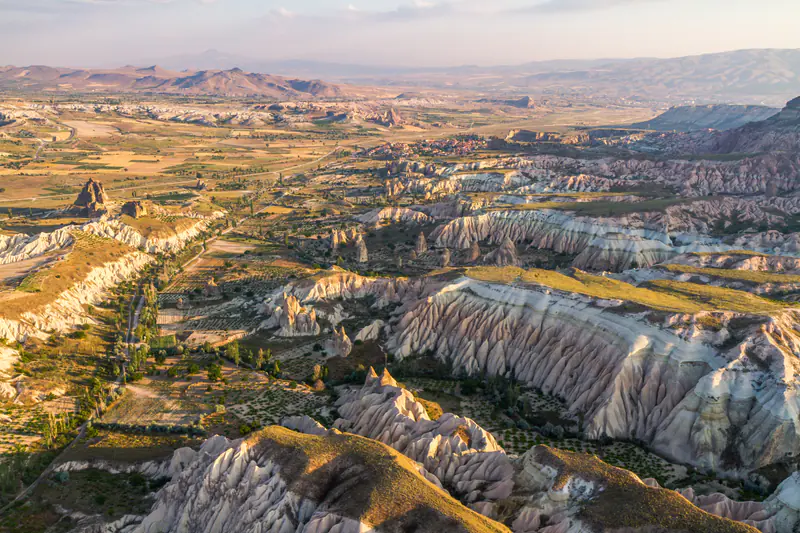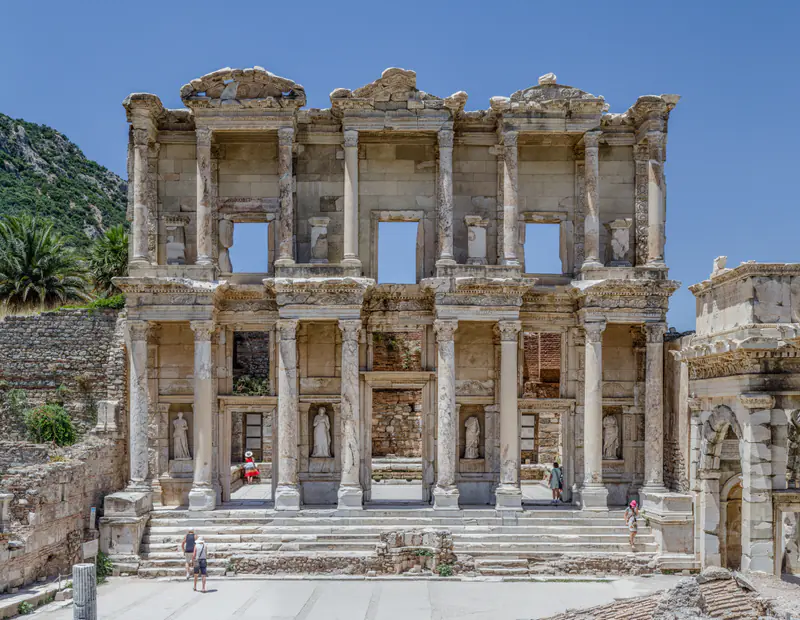UNESCO World Heritage Sites in Turkey
Heritage Overview
Turkey occupies a unique position bridging Europe and Asia, hosting an extraordinary concentration of cultural and natural heritage spanning over 10,000 years of human civilization. From the fairy chimneys of Cappadocia's volcanic landscapes to the classical ruins of Ephesus and the Ottoman splendour of Istanbul, the nation preserves some of humanity's most significant archaeological, architectural, and natural treasures. The country's strategic location along ancient trade routes fostered remarkable cross-cultural exchange, evidenced in Byzantine churches, Seljuk caravanserais, and Ottoman mosques that showcase millennia of artistic and architectural innovation. Turkey's diverse geography encompasses Mediterranean coastlines, Anatolian highlands, and unique geological formations, creating habitats for endemic species while preserving evidence of early human settlement. As a signatory to the World Heritage Convention since 1983, Turkey actively protects these irreplaceable sites, balancing conservation with sustainable tourism development. The nation's commitment to heritage preservation reflects its role as custodian of civilizations that profoundly shaped human history, from Neolithic communities to Byzantine emperors and Ottoman sultans.
Essential Information
Visa Requirements
Most visitors require an e-Visa obtainable online before arrival, valid for tourist stays up to 90 days within a 180-day period. Citizens of certain countries receive visa-free entry or visa on arrival. E-Visa applications require a passport valid for at least 60 days beyond intended stay and are typically processed within minutes. Fee structures vary by nationality (£20-60). Business travelers and longer stays may require different visa categories obtained through Turkish diplomatic missions. Always verify current requirements for your nationality before booking, as regulations periodically change. The e-Visa system streamlines entry but does not guarantee admission—immigration officers retain final authority.
Currency
The Turkish Lira (TRY, ₺) is the official currency. ATMs are widespread in cities and tourist areas, accepting major international cards with competitive rates. Credit cards (Visa, Mastercard) are widely accepted in hotels, restaurants, and tourist shops, though cash remains essential for smaller establishments and rural locations. Currency exchange offices (*döviz bürosu*) offer reasonable rates in cities. Many tourist services quote prices in euros or dollars but accept lira. Carry mixed denominations as change can be limited. Contact your bank regarding foreign transaction fees before departure.
Language
Turkish is the official language, written in Latin script since 1928. English proficiency is moderate in tourist areas, hotels, and major cities, though limited in rural regions. Learning basic phrases (*merhaba* - hello, *teşekkür ederim* - thank you) significantly enhances interactions. German is commonly spoken in tourist industries. Younger generations generally have better English skills. Restaurant menus in tourist areas typically include English translations. Translation apps prove invaluable for markets and less touristed areas. Road signs in major areas include English alongside Turkish.
Climate
Turkey experiences diverse climate zones. Coastal regions enjoy Mediterranean climates with hot, dry summers (June-September, 25-35°C) and mild, wet winters (December-March, 10-15°C). The Anatolian interior, including Cappadocia, has continental climate with hot summers (30-35°C) and cold winters (-5 to 5°C) with snow. Spring (April-May) and autumn (September-October) offer ideal visiting conditions with moderate temperatures (15-25°C) and fewer crowds. Istanbul experiences transitional climate between zones. Black Sea coastal regions receive rainfall year-round. Summer heat in interior regions can be intense. Winter visits to Cappadocia offer snowy landscapes.
Featured Heritage Sites
Last updated: 11 December 2025

